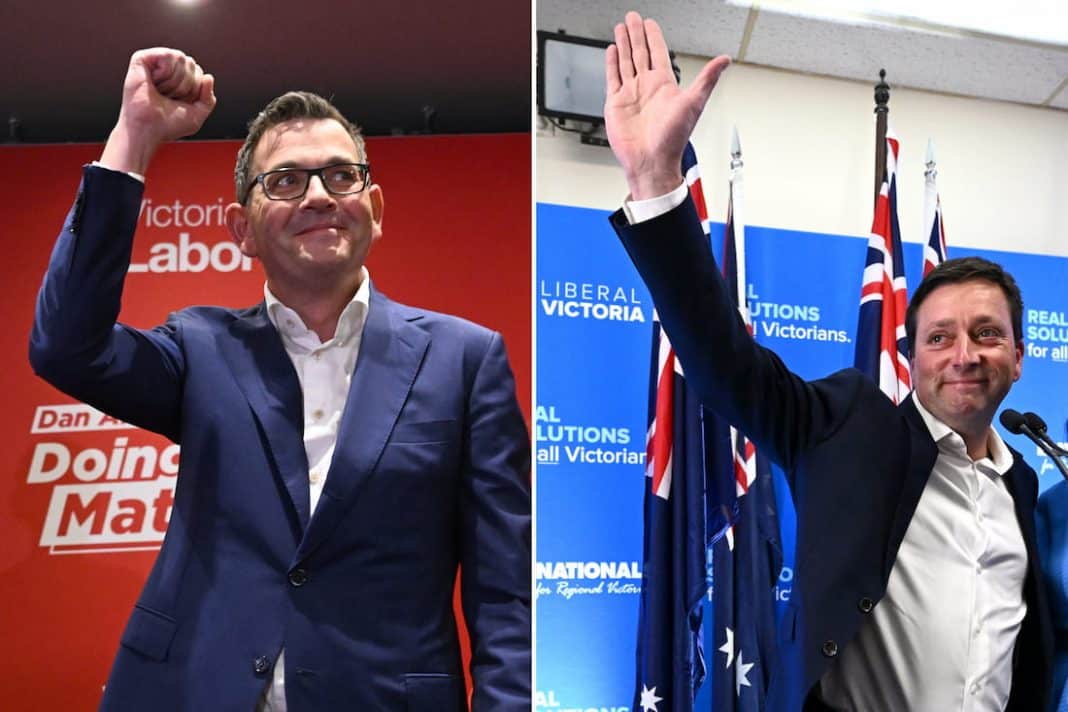Victorians are waking up to a third term of the Andrews government after Labor secured a majority in the state’s lower house.
Labor was on track to win at least 49 seats, above the required 45-seat majority, with the coalition securing 24 seats and the Greens at least four.
Eleven seats remained too close to call on Sunday morning, although Labor was predicted to win or was ahead in seven of the electorates.
Premier Daniel Andrews promised to govern for every Victorian, including those who didn’t vote for his party, attributing his victory to a triumph of hope over hate.
“We will deliver each and every element of our positive plan to benefit each and every Victorian, no matter how you voted,” Mr Andrews told cheering supporters.
Matthew Guy must now decide whether he stays on as Liberal leader after losing to Mr Andrews in two consecutive elections.
Mr Guy gave no hints about his future as he conceded defeat just before 11pm on Saturday but remained optimistic about the coalition’s future.
“We intend to hold the government in the next term to account for what they have committed and for the important issues that are raised on behalf of Victorians to them in the parliament,” he told supporters in his electorate of Bulleen.
The Greens were likely to win at least one extra inner-Melbourne seat, which leader Samantha Ratnam described as a “Greenslide”.
The party was well ahead of Labor in Richmond on Sunday morning, while it remained in the running in Northcote.
Teal independent Melissa Lowe had hoped to win the inner-Melbourne seat of Hawthorn against Liberal John Pesutto but she had fallen behind by a few hundred votes as postal ballots rolled in.
Labor gained the seat of Glen Waverley and the newly created seat Bayswater and was ahead in Hastings but lost Nepean to the Liberals and Morwell to the Nationals.
The Nationals also picked up Shepparton and Mildura in regional Victoria from independents.
Mr Andrews has committed to serving a full four-year term as leader which would make him the longest-serving Victorian premier.
He would be only the fifth leader in the state’s history to serve more than 3000 days in office, making him eligible for a bronze statue outside 1 Treasury Place in Melbourne.



